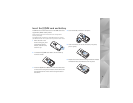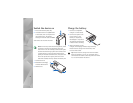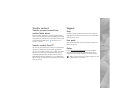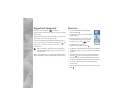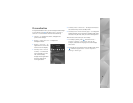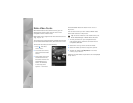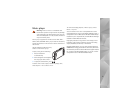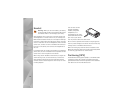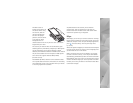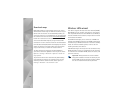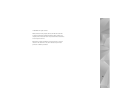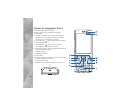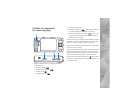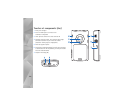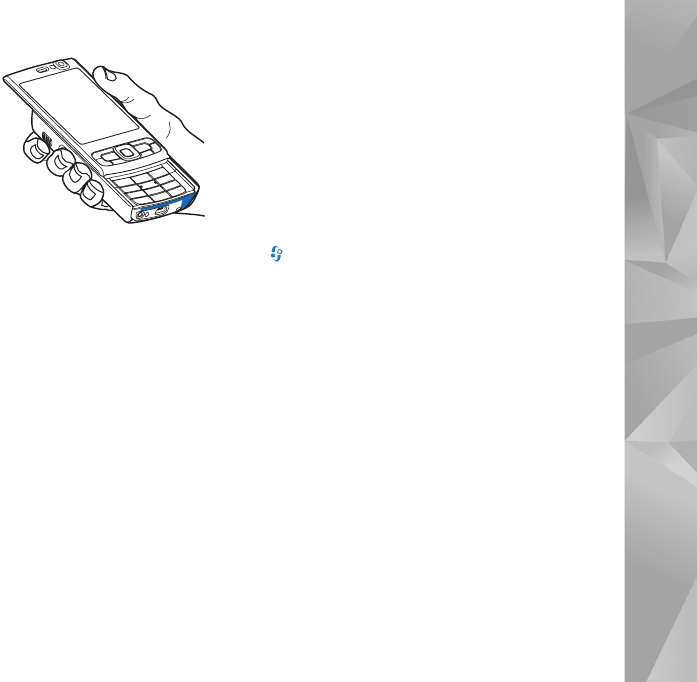
13
The GPS receiver is
located in the bottom of
the device. When using
the receiver, slide the
numeric keypad open,
and from an upright
position, move the device
to an angle of about
45 degrees with an
unobstructed view of the sky. Do not cover the numeric
keypad with your hand.
The accuracy of location data can be affected by poor
satellite geometry. Availability and quality of GPS signals
may be affected by your location, buildings, natural
obstacles, and weather conditions. The GPS receiver should
only be used outdoors to allow reception of GPS signals.
Your device also supports Assisted GPS (A-GPS)
(network service).
Assisted GPS (A-GPS) is used to retrieve assistance data
over a packet data connection, which assists in calculating
the coordinates of your current location when your device
is receiving signals from satellites.
Any GPS should not be used for precise location
measurement, and you should never rely solely on
location data from the GPS receiver and cellular radio
networks for positioning or navigation.
Maps
With Maps, you can see your current location on the map,
browse maps for different cities and countries, search for
addresses, and plan routes. To open the Maps application,
press
, and select Maps. The map coverage varies
by country.
Almost all digital cartography is inaccurate and incomplete
to some extent. Never rely solely on the cartography that
you download for use in this device.
When you browse the map on the display, for example,
to move to another country, a new map is downloaded
automatically, provided that you have an internet connection.
Downloading maps may involve the transmission of large
amounts of data through your service provider’s network.
Contact your service provider for information about data
transmission charges.



